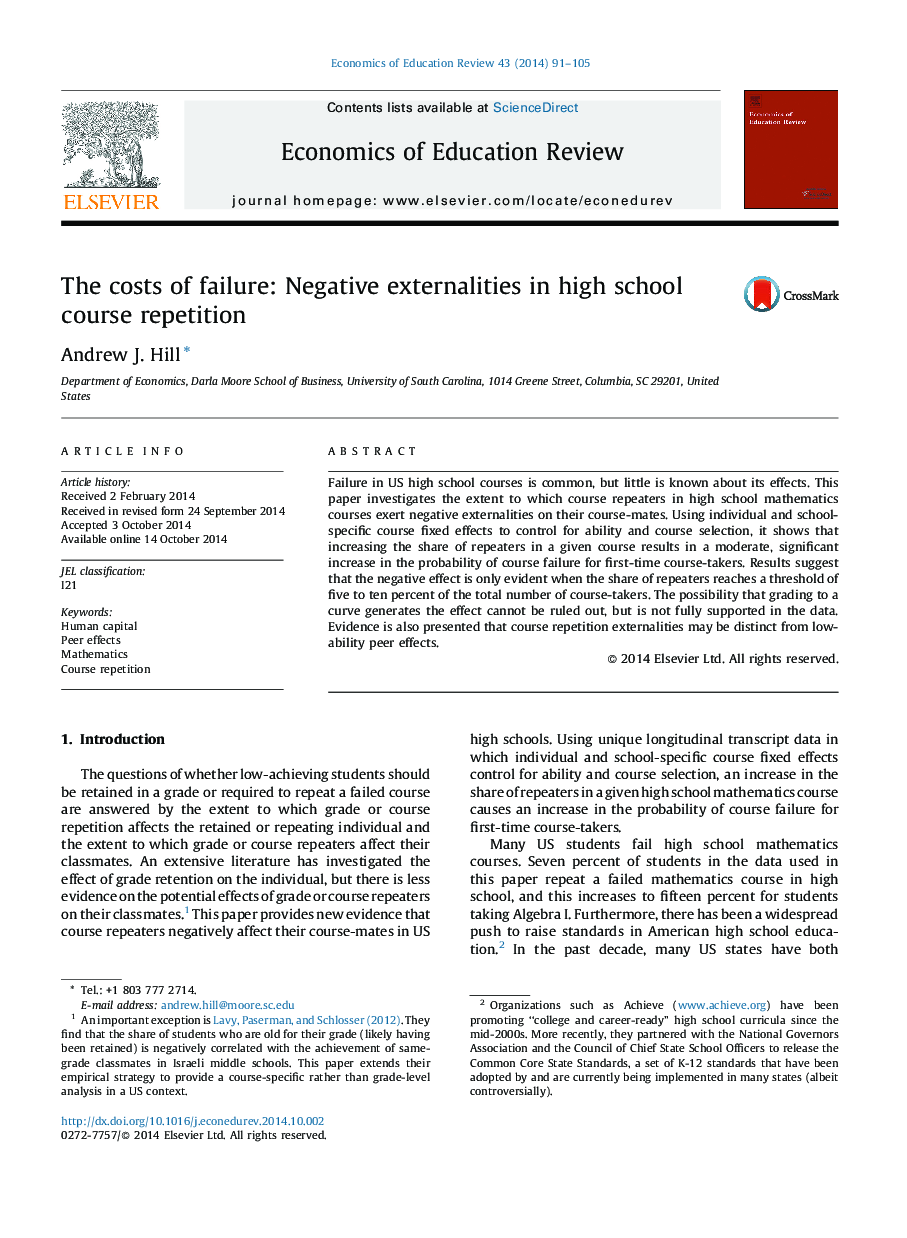| Article ID | Journal | Published Year | Pages | File Type |
|---|---|---|---|---|
| 6840883 | Economics of Education Review | 2014 | 15 Pages |
Abstract
Failure in US high school courses is common, but little is known about its effects. This paper investigates the extent to which course repeaters in high school mathematics courses exert negative externalities on their course-mates. Using individual and school-specific course fixed effects to control for ability and course selection, it shows that increasing the share of repeaters in a given course results in a moderate, significant increase in the probability of course failure for first-time course-takers. Results suggest that the negative effect is only evident when the share of repeaters reaches a threshold of five to ten percent of the total number of course-takers. The possibility that grading to a curve generates the effect cannot be ruled out, but is not fully supported in the data. Evidence is also presented that course repetition externalities may be distinct from low-ability peer effects.
Related Topics
Social Sciences and Humanities
Economics, Econometrics and Finance
Economics and Econometrics
Authors
Andrew J. Hill,
